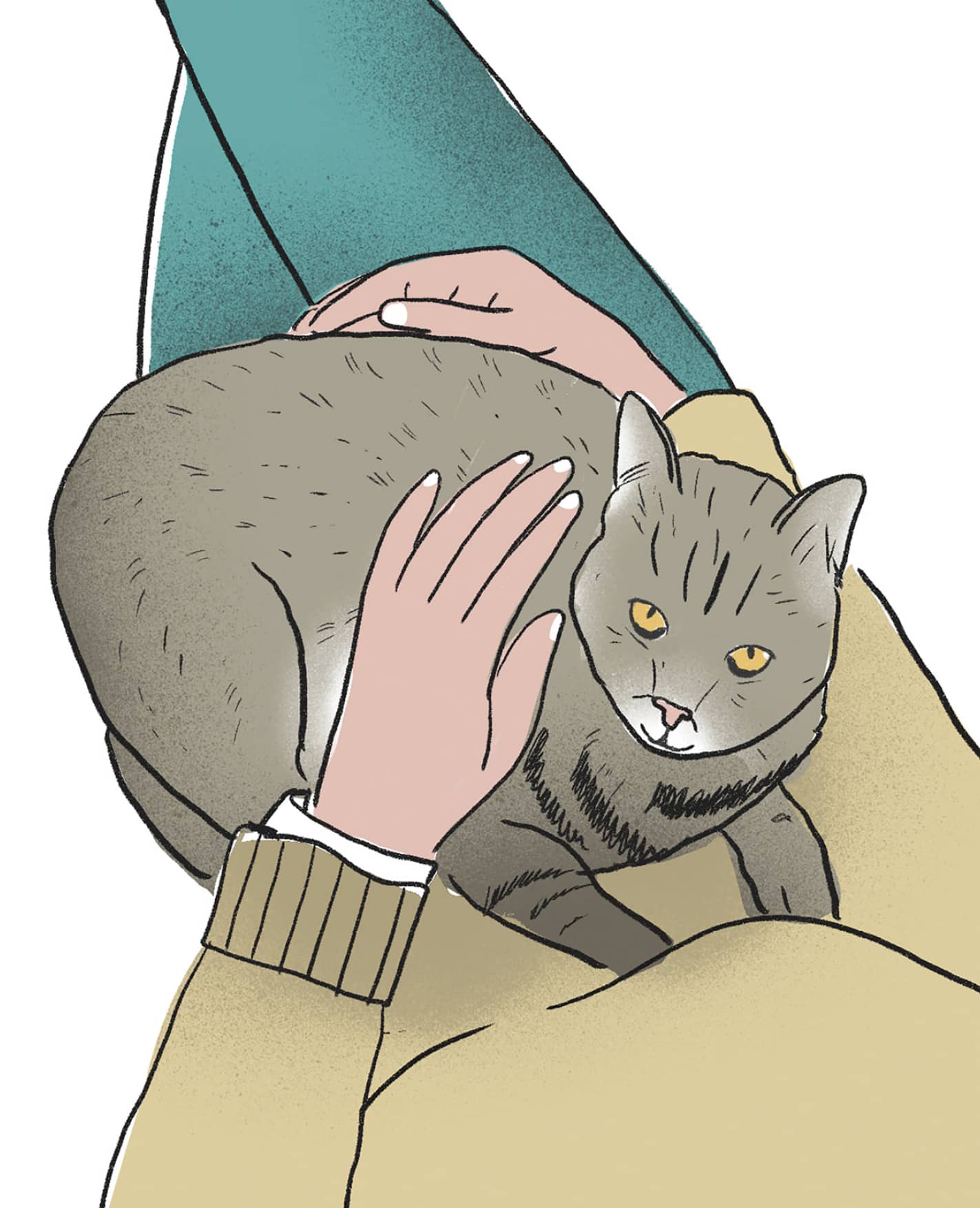Animals in the Home
Dog owners often describe the glorious feeling that they experience when they arrive home to a warm welcome from their dogs. The excitement of hearing their owner turning the key in the lock can bring dogs bounding across the room, eager for a cuddle and stroke (perhaps they know that it’s dinnertime). That unconditional love shown by animals can bring us right into the moment.
Our pets don’t judge us. No matter how their day was, they are generally excited to see us walk through the door. We need not worry about our appearance or what mood we are in: if we’re happy, they’re happy; if we’re sad, they are there for a snuggle. We often worry about how our mood will affect others, worry about judgement, or how we are perceived by others. These worries vanish when it comes to animals.

PROVIDING SUPPORT
Animals of many kinds can help provide social support, which is important to help us raise the feel-good chemicals in our brains, such as serotonin and dopamine. Hospitals and care homes use therapy animals such as dogs and cats for this very reason. Stroking pets can help to release anxiety, and even watching fish swim around their tank can help ease tension, which is why they are often found in hospitals and dentists waiting areas. The gentle rise and fall of a sleeping cat’s belly can be relaxing and calming, helping us to tune into the moment and slow down our own breathing. All in all, pets create a lovely soothing moment for us to be present in.
LESS LOVABLE CREATURES
Not all animal experiences are as pleasant as snuggling down with a cat. There are times when we have unwanted guests in our homes, and this can be testing. Many otherwise brave people, even animal lovers, would admit to having one or two creepy-crawlies that they just don’t like. An example would be spiders; many people have a deep fear of them that’s quite immune to any suggestion that the spiders won’t actually hurt them. Or we may have a fly infestation, testing our patience when trying to keep the house and our food clean, irritated by the endless buzzing. It can be all too easy to reach for a fly swatter or some wasp spray.
This, however, is not the most mindful approach. Chemicals sprays aren’t great for the environment, and more generally, we share the planet with these amazing creatures and even the less desirable ones have a right to be here too.
Buddhists are animal lovers who try not to harm animals wherever possible. They believe that a soul may be reborn either in a human being or the body of an animal, both with a Buddha nature, and both with the possibility of becoming enlightened. This is what Buddhists avoid killing animals at all costs, even those pesky mosquitoes that bite.
You may not quite believe in human-souled wasps, but there is a lesson there: life is precious. If you’re suffering from a phobia, try to sit with it mindfully. Don’t judge yourself for being afraid; just let the fear happen, observe it, and don’t overreact. As children, we are often full of curiosity for bugs and beasts of all shapes and sizes; see if you can observe as a child would, as openly as possible. Even the creepiest of creatures is extraordinary if you can view it through mindful eyes.
LEARNING FROM ANIMALS
Animals can teach us so much about the way we are, and we don’t need a pet to do this. We can watch them playing, and observe how they appear to be completely in the moment. A dog chewing on his bone, or a bird outside the window patiently building his nest, twig after twig. This can be a wonderful meditative experience to observe.
These living creatures give us the opportunity to embrace our silliness. It is hard not to smile when watching animals, and this can be really helpful for snapping us out of our trickier states of mind. We can practise mindfulness by simply tuning into our senses in the present moment, by paying attention to the touch of their fur or listening to the sounds that they make.